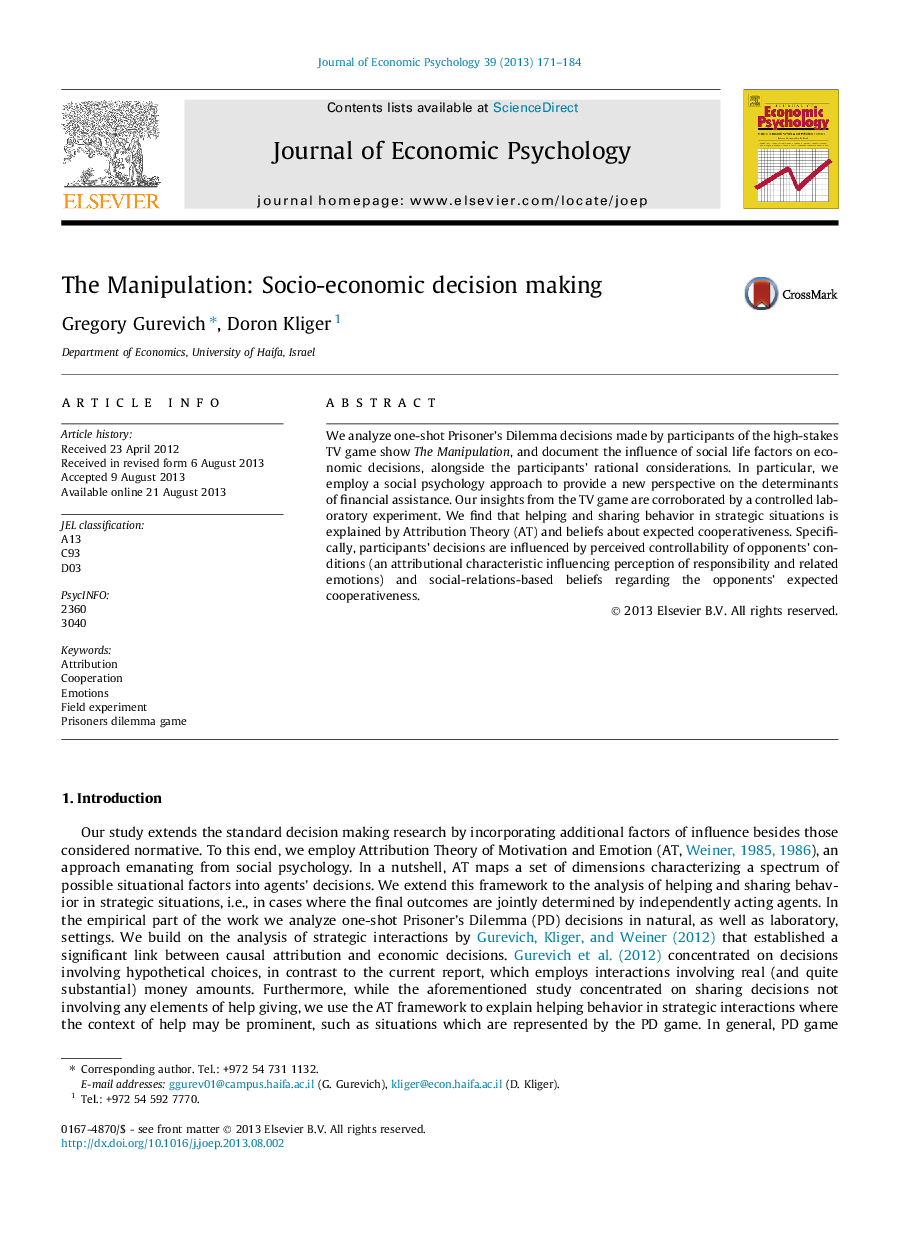| Article ID | Journal | Published Year | Pages | File Type |
|---|---|---|---|---|
| 7244934 | Journal of Economic Psychology | 2013 | 14 Pages |
Abstract
We analyze one-shot Prisoner's Dilemma decisions made by participants of the high-stakes TV game show The Manipulation, and document the influence of social life factors on economic decisions, alongside the participants' rational considerations. In particular, we employ a social psychology approach to provide a new perspective on the determinants of financial assistance. Our insights from the TV game are corroborated by a controlled laboratory experiment. We find that helping and sharing behavior in strategic situations is explained by Attribution Theory (AT) and beliefs about expected cooperativeness. Specifically, participants' decisions are influenced by perceived controllability of opponents' conditions (an attributional characteristic influencing perception of responsibility and related emotions) and social-relations-based beliefs regarding the opponents' expected cooperativeness.
Related Topics
Social Sciences and Humanities
Business, Management and Accounting
Marketing
Authors
Gregory Gurevich, Doron Kliger,
